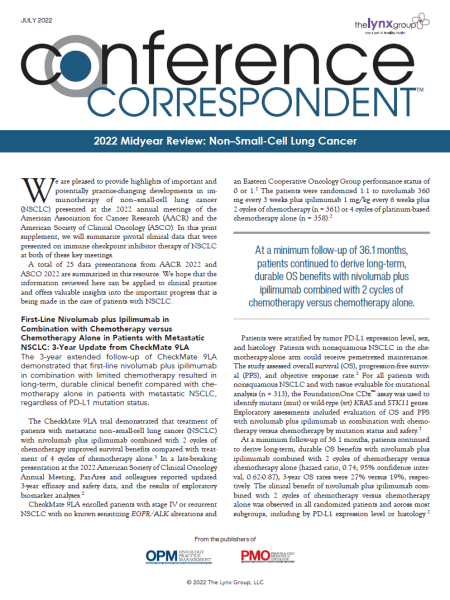During the COVID-19 pandemic, guidelines recommended delaying surgery for patients who have operable stage IA NSCLC. However, research shows that an alternative approach, stereotactic body radiotherapy, does not result in similar outcomes.
Surgical resection, specifically lobectomy, has been the treatment of choice for early-stage NSCLC.1 However, disadvantages of traditional open lobectomy procedures have engendered interest in other treatment options for operable patients. Stereotactic body radiotherapy (SBRT) was first developed to treat patients with medically inoperable disease.1
During the COVID-19 pandemic, national guidelines have recommended that patients with operable stage IA NSCLC consider delaying surgery by at least 3 months. Alternatively, patients can undergo SBRT without delay. It is not known which strategy is associated with better short- and long-term efficacy outcomes.2
To learn more, researchers used a retrospective database to evaluate differences in OS for patients with operable stage IA NSCLC who underwent “early” SBRT, which was defined as within 0 to 30 days after diagnosis versus “delayed” surgery, which was defined as 90 to 120 days after diagnosis.2 Multivariable Cox proportional hazards modeling and propensity score matched analysis were used to compare the OS of patients with stage IA NSCLC in the National Cancer Database from 2004 to 2015 who underwent “early” SBRT versus the OS of patients who underwent “delayed” wedge resection.2 During the study period, 55% of 1045 patients underwent early SBRT and 45% underwent delayed wedge resection.2
Based on multivariable analysis, delayed resection was associated with improved OS (adjusted HR, 0.61; 95% CI, 0.50-0.76).2 Propensity score matching was used to create 2 groups of 279 patients each who received early SBRT or delayed resection that were well-matched with regard to baseline characteristics. The 5-year survival associated with delayed resection was 53% (95% CI, 45%-61%).2 This was superior to the 5-year survival associated with early SBRT of 31% (95% CI, 24%-37%).2
In conclusion, this analysis shows that, for patients with stage IA NSCLC, delayed surgical resection offers improved OS compared with early use of SBRT.2
References
1. Ong B-H. Surgery versus stereotactic body radiotherapy in medically operable non-small cell lung cancer. J Xiangya Med. 2018;3:1-13.
2. Mayne NR, Lin BK, Darling AJ, et al. Stereotactic body radiotherapy versus delayed surgery for early-stage non-small-cell lung cancer. Ann Surg. 2020;272:925-929.

